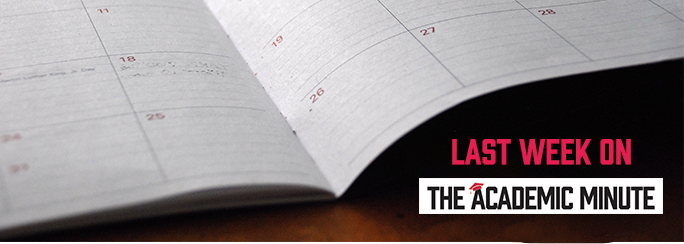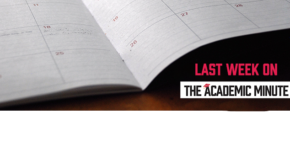
The Academic Minute from 4.17 – 4.21
Monday
Robin Craig – University of Southern California
Without Water, Native American Tribes Hit Hard by the Pandemic
Robin Craig is the Robert C. Packard Trustee Chair in Law at the University of Southern California Gould School of Law, where her research focuses on “all things water,” especially the impact of climate change on freshwater resources and the oceans, the Clean Water Act, and the intersection of water and energy law.
Tuesday
Thomas Petersen – University of Southern California
Concrete Built Half our World, But May be Harming It
Dr. Petersen started working as an Assistant Professor in the Sonny Astani Department of Civil and Environmental Engineering in Fall 2022. Prior to arriving at the University of Southern California, he spent three years as a Senior Research Engineer at ExxonMobil, where he developed technologies to improve the integrity of wells during construction and operation. Specifically, he worked on composite fluid and solid systems that reduce pressure and stress developments in confined, high-temperature, and high-pressure environments. At USC, his research focuses on modeling the electrochemistry and dissolution-precipitation kinetics of reactive, solidifying systems; developing models and experiments to understand the growth in elasticity and internal stresses during cement hydration; and designing composite materials with new functionality for civil engineering applications.
Wednesday
Travis Williams – University of Southern California
Making Medicine from Garbage in the Ocean
Travis Williams is a professor of chemistry at the USC Dornsife College of Letters, Arts and Sciences whose research focuses on using tools from inorganic, organic, and analytical chemistry to solve problems in synthesis, catalysis, and medicine. Williams’ research group is currently designing catalytic systems for synthetic fuels and fine chemicals to reclaiming value from waste polymers and materials.
Thursday
Bistra Dilkina – University of Southern California
In a Warmer World, Half of All Species are on the Move. Where are they Going?
Bistra Dilkina is an Associate Professor of Computer Science at the University of Southern California. She is also the co-Director of the USC Center for AI in Society (CAIS), a joint effort between the USC Viterbi School of Engineering and the USC Suzanne Dworak-Peck School of Social Work. Dilkina’s research focuses on advancing the state of the art in combinatorial optimization techniques for solving real-world large-scale problems, particularly ones that arise in sustainability areas such as biodiversity conservation planning and urban planning. Her work is at the intersection of discrete optimization and machine learning. One key area of research is designing machine-learning-driven combinatorial optimization algorithms, by leveraging the plethora of data generated by solving distributions of real world optimization problems.
Friday
Essam Heggy – University of Southern California
Crisis on the Nile
Essam Heggy is a Research Scientist in the Department of Electrical Engineering & Electrophysics at the USC Viterbi School of Engineering, and at the Rosetta mission project office at the NASA’s Jet Propulsion Laboratory. Heggy obtained both MSc and PhD respectively in 1999 and 2002 on Terrestrial and Planetary Radar Studies with distinguished honors from the Sorbonne University in Paris, France. His research focuses on understanding water evolution in Earth’s arid environments as well as planetary surfaces using radar surface and subsurface characterization methods.
